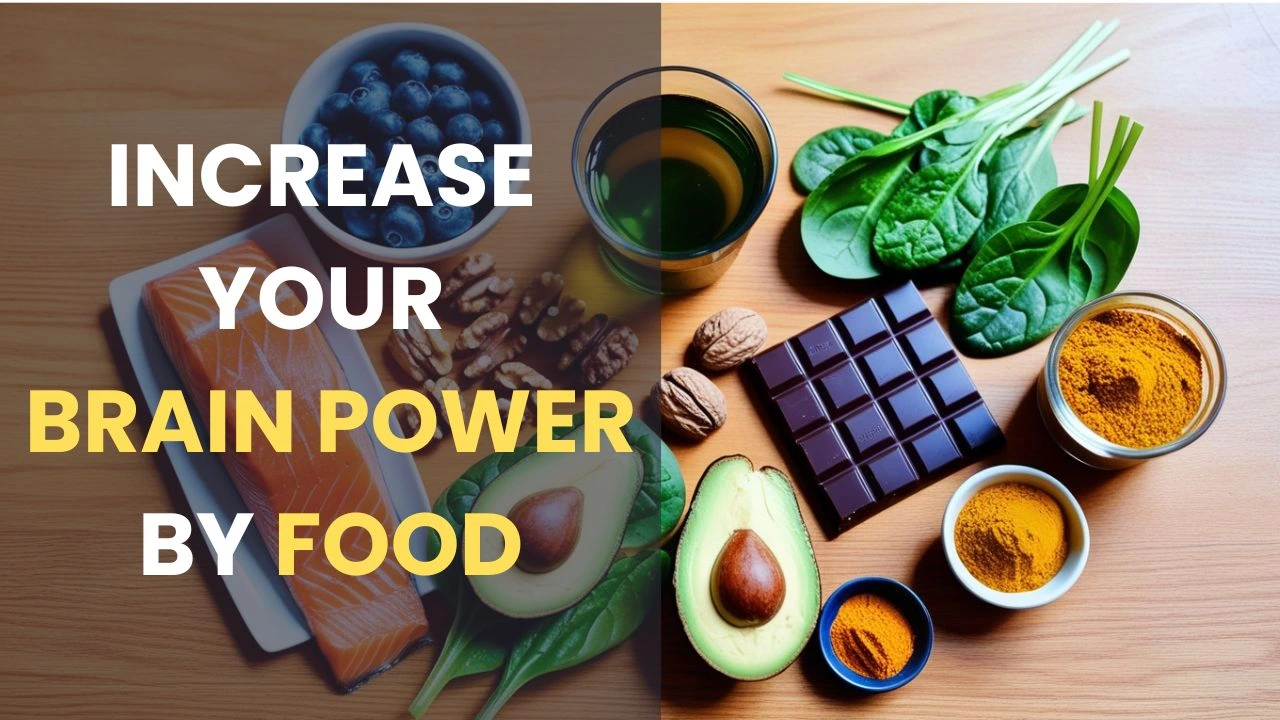You might have heard about your brain as the control center of your body since it controls all activities ranging from thinking to movement. If you want it to operate at optimum performance, it must be fed with the right fuel. The foods a person consumes impact the degree of efficiency of the brain; memory, concentration, and clear thinking. This guide will focus on the most efficient nutrients for the brain, which are easy to obtain for all groups of people.
How Does Food Impact Brain Health?
The human brain consumes approximately 20% of the total energy for the body and what fuel is best for the brain? Omega 3 fatty acid, antioxidants, vitamins and minerals prevent neurons’ deterioration, enhance the efficiency of the neural signals, and provide for improved brain functions. It means a diet that supplies nutrients to the brain prevents loss of memory, enhances attention, and decreases the likelihood of mental disorders.
On the other hand, eating a lot of processed foods, trans fats, and refined sugars can negatively affect the brain leading to lethargy, fuzzy heads, and even the acceleration of Alzheimer’s disease. The solution? Reach for Healthy Nutrient Supporting Foods.
The Best Foods for Brain Function and Concentration
1. Fatty Fish
Other than white meat, fish such as salmon, mackerel, sardine, and tuna are some of the most recommended foods for the brain to enhance proper functioning. They contain omega-3 fatty acids such as DHA and EPA necessary for the formation of new brain cells and for supporting the connections between them.
How to Include It:
1. Pan-fry or oven-bake salmon for lunch or dinner.
2. For those who prefer vegetarian products, incorporate nuts like walnuts, flax seeds, and chia seeds.
2. Berries
Blueberries, strawberries, and blackberries are all excellent sources for antioxidants. they are rich in flavonoids that have the ability to repair dead brain cells, enhance memory and decelerate further aging of the brain.
How to Include It:
1. Include a dessert spoon full of berries to your prepared bowl of cereal or blend into your fruit smoothie.
2. You can use frozen berries for making desserts or a healthy snack.
3. Nuts and Seeds
Almonds, walnuts, sunflower seeds, and pumpkin seeds are examples of foods rich in Vitamin E, unsaturated fats and Magnesium. Such nutrients shield your brain and help to age well cognitively.
How to Include It:
1. Take nuts and seeds of your choice at the discretion of the healthcare provider as a snack daily.
2. Use them on your salads, yogurts, or even your oatmeal in the morning.
4. Dark Chocolate
Flavonoids that are found in dark chocolate and small amounts of caffeine enhance mood, concentration,and heightened awareness. It also increases the rates of blood circulation in the brain hence promoting concentration.
How to Include It:
1. The best type of chocolate to use is dark chocolate, with a minimum cocoa content of 70 percent.
2. You can engage the taste buds by taking a small amount on its own as a snack or with your sweet course.
5. Whole Grains
Whole grains such as oats, brown rice, quinoa, and whole-grain bread help feed the brain with energy constantly. As opposed to refined carbs, they release glucose slowly and supply focus all day without the energy slump a fast glucose spike provides.
How to Include It:
1. In exchange of using white rice, it is recommended to use brown rice or quinoa.
2. Follow breakfast with oatmeal accompanied by fruits and nuts.
6. Leafy Green Vegetables
Folate, Vitamin K, and Vitamin A-rich foods such as spinach, kale, broccoli, and other green, leafy vegetables are also excellent. These nutrients; have the ability to subdue inflammation and enhance the health of the brain.
How to Include It:
1. Spinach can also be used in smoothies or salads.
2. Stir fry with beef or pork, include in omelets or stea,m and accompany with a sauce.
7. Eggs
Protein is also provided in rich proportion and it is also rich in choline which is good for the synthesis of acetylcholine, a chemical that is used in the treatment of mood swings and memory deficiencies. It is also enriched in Vitamin B 12 that are very essential to improving the functioning of the human brain.
How to Include It:
1. You can snack on boiled eggs or you can even add boiled eggs in your breakfast omelet.
2. Include eggs in fried rice or even in salads.
8. Turmeric
Curcumin is an antioxidant and an anti-inflammatory, and turmeric is a potent spice. Curcumin is good for memory and the development of neurons.
How to Include It:
1. Eat food items such as curries or soups.
2. Make golden milk (turmeric milk) as a warm evening drink.
9. Avocados
Avocados contain mono unsaturated fatty acids which increase blood circulation in the brain. It also holds potassium and Vitamin E that enhance cognition.
How to Include It:
1. Use it on buttered toast, or mix it with other ingredients in making salads.
2. Add it to fruit smoothies to give the mix an extra creamy feel.
10. Green Tea
Green tea is beneficial for the brain because it contains both caffeine and L-theanine, these two chemicals help the brain to be more alert, and reduce stress. Its antioxidants also shield the cells of the brain from destruction.
How to Include It:
1.Consume a cup of green tea in the morning or during the afternoon as a coffee substitute.
2. Switching to matcha tea may be even better because the tea offers even more concentration of the compounds that are beneficial to the brain.
A New List of Foods that Can Enhance Your Brain Functions And Lifestyle Habits that Should Go With Them
1. Stay Hydrated
Lack of water affects the ability to concentrate and memories. It is essential to drink at least 8 – 10 glasses of plain water in a day depending on the weather conditions. Drink water-rich foods such as cucumber, oranges as well as melons like watermelon.
2. Exercise Regularly
Exercise enhances circulation and also increases amounts of the neuroparticle BDNF, a protein that helps support neurons within the brain. They are aerobic, which means that they are good for you – walking, cycling or doing yoga, for instance.
3. Get Enough Sleep
REM sleep is important for memory consolidation and GABAergic activity for cognitive clarity. Make it goal to get between seven and eight hours of good unbroken sleep every night to allow your brain to rest.
Here is the Conclusion
Cognitive nutrition is an essential aspect of your diet because the state of the brain influences your performance. Several foods can boost brainpower, smart food to include is fish, nuts, berries, greens, and whole grains in your meals. For these dietary modifications, work alongside exercise, adequate fluid intake, and reasonable sleep if you want to approach mental health with a holistic view.
Just bear in mind that everybody who wants to improve something in his life knows that great change comes from small steps. Try replacing ready-made foods with natural foods then slowly observe improvements in brain ability and focus.
FAQs
- What is the best food for quick concentration?
Dark chocolate and green tea provide an instant focus boost due to their caffeine and antioxidant content.
2. Can these foods help with age-related memory loss?
Yes, foods rich in antioxidants and Omega-3 fatty acids can slow cognitive decline and support memory in aging individuals.
3. How long does it take to see results from brain-boosting foods?
While immediate effects like better focus may be noticeable within hours, long-term benefits require consistent dietary habits over weeks or months.
4. Are vegetarian options as effective as non-vegetarian ones?
Absolutely! Vegetarian foods like nuts, seeds, leafy greens, and whole grains offer comparable brain-boosting benefits.
5. How important is hydration for brain health?
Hydration is crucial as even mild dehydration can impair focus, memory, and overall brain function.










Leave a comment